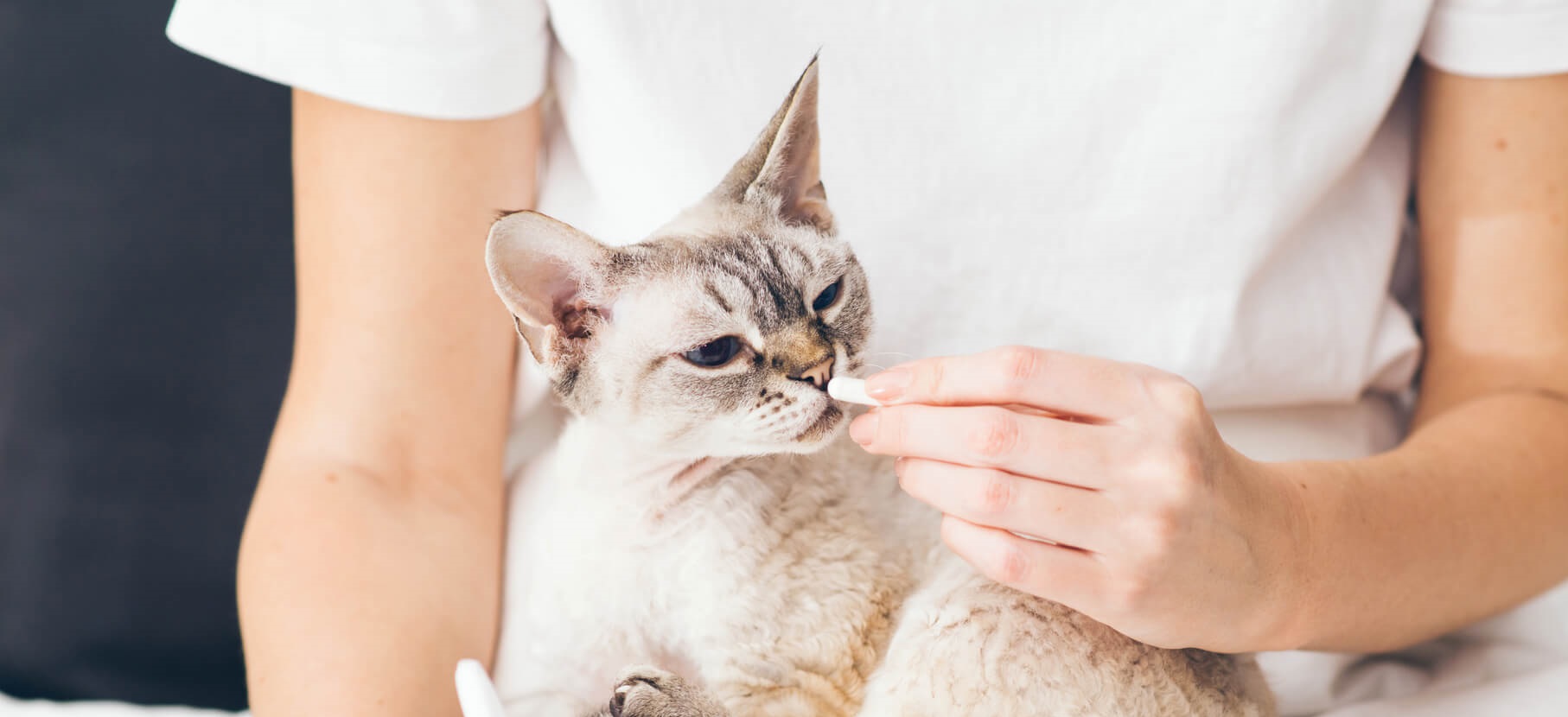
Medicating fussy cats: do they have a flavour preference?
4th January, 2023
Even the most easy-going and affectionate of cats can become stubborn, with a mind of their own, when they need to take medicine orally.
A common method of administering medication is forcing the cat to swallow it dry by placing a pill at the back of the mouth. However, this approach can negatively affect the bond with your pet, increase inflammation of the oesophagus and make your cat more apprehensive about future treatment.
Liquid forms of medication are typically easier to administer to cats, but their acceptance of these formulations depends on the flavour and type.
So are there any particular flavours that cats are more likely to accept in liquid medications? US researchers recently conducted a study to find out.
In the study, 46 healthy pet cats aged between 1 and 12 years were given a variety of flavourings, like chicken, beef and fish, in unmedicated oil- and water-based formulas. There was no clear favourite flavour, but the cats favoured oil-based flavourings over water-based flavourings and they did not like sweet flavours.
If you have ever struggled to get your cat to take medicine, however, you won’t be surprised to learn that the cats in the study were picky.
“Overall, cats did not voluntarily accept most of the compounding flavours,” the researchers wrote in the Journal of the American Veterinary Medical Association.
Six in ten (60%) didn’t like any of the oil-based flavours, while 85% disliked the water-based flavours.
“The moral of the story is to try something that has the best odds of working,” said Amy Nichelason, a board-certified canine and feline practitioner and assistant clinical professor at the University of Wisconsin-Madison School of Veterinary Medicine. “What I took home from this as a veterinarian is that I should avoid sweet flavours and use oil-based flavourings when possible.”
It’s worth trying different formulations — chews, liquid or tablets — based on what your cat likes. Rewarding your cat after any medication with a treat or extra affection can also help to reinforce a positive outcome.
And it’s important to be honest with your vet.
“If the formulation isn’t working and it is creating stress, let us know so we can work together to create a better medication plan,” Nichelason added.
At Petwise we offer specialist cover to help protect your cat during their senior years. Choose from seven levels of senior cat insurance, with no upper age limit and no co-payment excess regardless of the age of your pet.